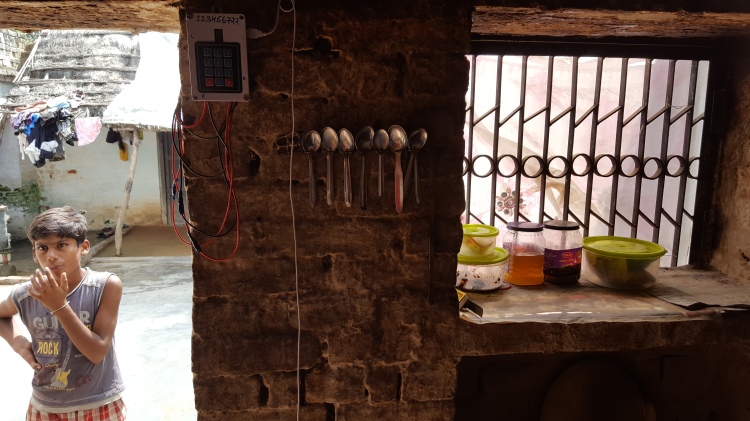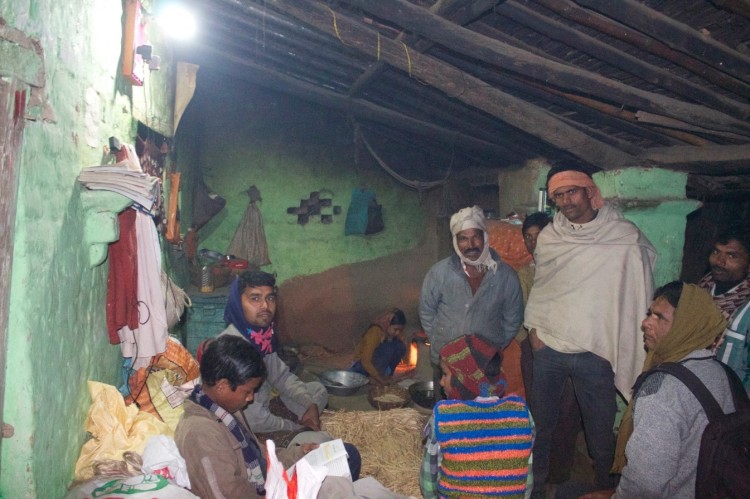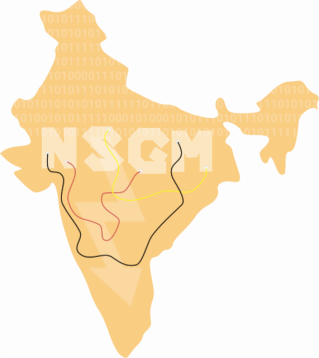Beyond technical smartness: Rethinking the development and implementation of sociotechnical smart grids in India
Energy Research & Social Science, Volume 49, March 2019, Pages 158-168

Abstract
How smart grids are understood and defined will influence the kinds of smart grids users will encounter in the future and their potential impacts. Practitioners and policymakers largely perceive smart grids as technological interventions. However, a number of social, financial and governmental interventions can also make grids smart, i.e., more efficient, more responsive, more inclusive and more robust. Drawing on qualitative research done using elite interviews, site visits and document analysis of eight micro-grids in India, this paper provides concrete examples of what could be understood as social, financial and governmental smartness, and in doing so, broadens the knowledge on smart grids beyond the technical understanding.
This paper argues that social, financial and governmental interventions are central to ‘smartness’, and that multifaceted and relational sociotechnical approaches will build cheaper, just, more democratic and sustainable smart grids. The paper observes that smart grids are not conceived as smart grids but rather develop incrementally. An incremental approach, rather than pushing a premeditated set of ideas and technologies, reduces adoption of non-contextual interventions as well as unnecessary investments in new technologies. The paper recommends that policymakers and practitioners should understand and develop smart grids as sociotechnical and incremental grids.
Link to open access article: https://www.sciencedirect.com/science/article/pii/S221462961831168X
तकनीकी स्मार्टनेस से परे: भारत में सामाजिक-तकनीकी (सोसियोटेक्निकल) ग्रिड के विकास और कार्यान्वयन पर पुनर्विचार
खंड 49, मार्च 2019, पृष्ठ 158-168
सार
स्मार्ट ग्रिड को कैसे समझा और परिभाषित किया जाता है, इसका प्रभाव भविष्य में उपयोगकर्ताओं और उनकी संभावनाओं पर होगा। प्लानरों और पालिसी निर्माताओं ने अभी तक स्मार्ट ग्रिड को तकनीकी हस्तक्षेप के रूप में समझा है। हालांकि, कई सामाजिक, वित्तीय और शासन संबंधी हस्तक्षेप भी ग्रिड को स्मार्ट बना सकते हैं, अर्थात्, अधिक कुशल, अधिक उत्तरदायी, अधिक समावेशी और अधिक ठोस। भारत में आठ माइक्रो ग्रिडों के मैनेजरों के साथ साक्षात्कार, उनके वेबसाइट का दौरा और दस्तावेज़ विश्लेषण का उपयोग करके किए गए गुणात्मक अनुसंधान पर आधारित, यह पेपर सामाजिक, वित्तीय और सरकारी स्मार्टनेस के ठोस उदाहरण प्रदान करता है, और ऐसा करने में, स्मार्टनेस पर ज्ञान को व्यापक बनाता है।
इस लेख में तर्क दिया गया है कि सामाजिक, वित्तीय और सरकारी हस्तक्षेप ‘स्मार्टनेस’ के लिए ज़रूरी हैं, और यह कि बहुपक्षीय और सामाजिक-तकनीकी (सोसियोटेक्निकल) दृष्टिकोण सस्ते, अधिक लोकतांत्रिक और टिकाऊ स्मार्ट ग्रिड का निर्माण करने में मदद कर सकता है। लेख समीक्षा करता है कि स्मार्ट ग्रिड को स्मार्ट ग्रिड के रूप में कल्पना नहीं की जाती, बल्कि वो वृद्धिशील रूप में विकसित होते है। वृद्धिशील दृष्टिकोण गैर-संदर्भीय हस्तक्षेपों और नई प्रौद्योगिकियों में अनावश्यक निवेश को कम करता है। पेपर की सिफारिश की गई है कि नीति निर्माताओं और प्लानरों को स्मार्ट ग्रिड को सोसियोटेक्निकल और वृद्धिशील ग्रिड के रूप में समझना और विकसित करना चाहिए।
ओपन एक्सेस लेख के लिए लिंक: https://www.sciencedirect.com/science/article/pii/S221462961831168X

